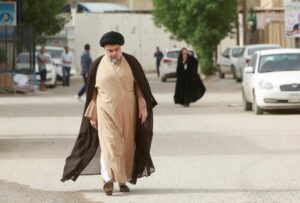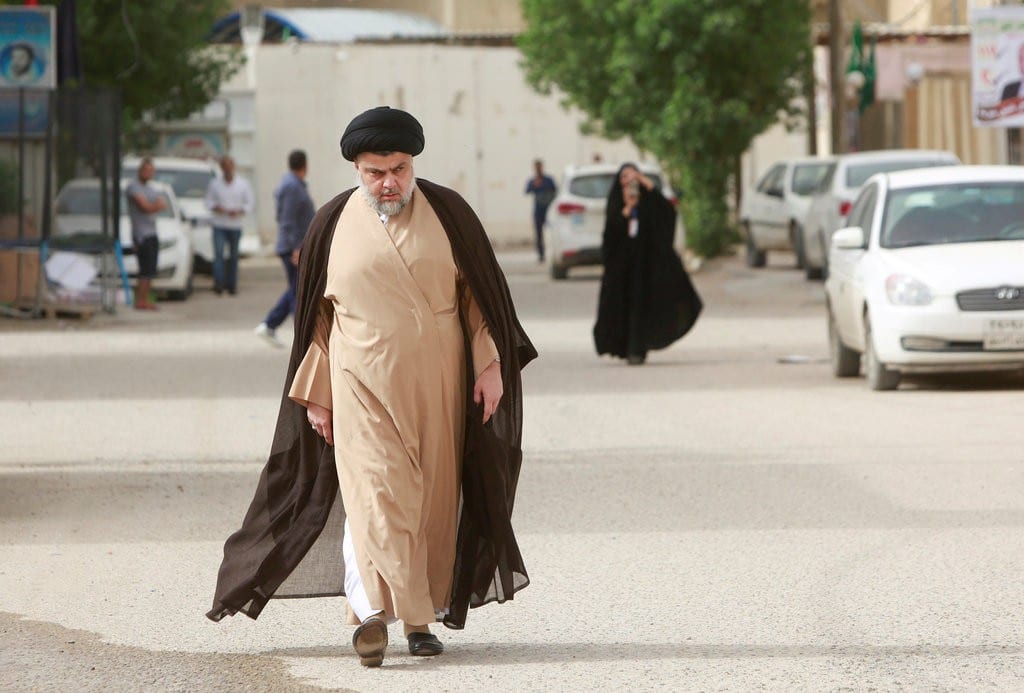
BAGHDAD — Iraqis are still haunted by memories of black-clad death squads roaming Baghdad neighborhoods a decade ago, cleansing them of Sunnis as the country was convulsed by sectarian violence.
Many of the mass killings in the capital were done in the name of Moktada al-Sadr, a cleric best remembered by Americans for fiery sermons declaring it a holy duty among his Shiite faithful to attack United States forces.
The militia he led was armed with Iranian-supplied weapons, and Mr. Sadr cultivated a strong alliance with leaders in Tehran, who were eager to supplant the American presence in Iraq and play the dominant role in shaping the country’s future.
Now, the man once demonized by the United States as one of the greatest threats to peace and stability in Iraq has come out as the surprise winner of this month’s tight elections, after a startling reinvention into a populist, anticorruption campaigner whose “Iraq First” message appealed to voters across sectarian divides.
The results have Washington — and Tehran — on edge, as officials in both countries seek to influence what is expected to be a complex and drawn-out battle behind the scenes to build a coalition government. Mr. Sadr’s bloc won 54 seats — the most of any group, but still far short of a majority in Iraq’s 329-seat Parliament.
Even before final results were announced early Saturday, Mr. Sadr — who did not run as a candidate and has ruled himself out as prime minister — had made clear whom he considers natural political allies. At the top of his list is Prime Minister Haider al-Abadi, the moderate Shiite leader who has been America’s partner in the fight against the Islamic State and whose political bloc finished third in the vote.
Pointedly absent from Mr. Sadr’s list of potential partners: pro-Iranian blocs, as he has insistently distanced himself from his former patrons in Iran, whose meddling he has come to see as a destabilizing force in Iraq’s politics.
Early Sunday morning, the prime minister met with Mr. Sadr in Baghdad. They discussed forming a government, and aides from both sides said the men saw eye to eye on prioritizing the fight against corruption.
While Mr. Sadr has all the momentum going into negotiations over the governing coalition, there is no guarantee his bloc will be in power. And it is too early to tell what the election may mean for Iraqi stability or American national security goals.
But the upset has clearly weakened the sectarian foundation of Iraq’s political system — and helped transform Mr. Sadr’s image from the paragon of a militant Shiite into an unexpected symbol of reform and Iraqi nationalism.
As the head of the Sairoon Alliance for Reform, Mr. Sadr presides over an unlikely alliance that pairs his pious, largely working-class Shiite base with Sunni business leaders, liberals and Iraqis looking for relief from the country’s long-simmering economic crisis.
For those joining the alliance, it was important to be convinced that Mr. Sadr’s shift from Shiite firebrand to Iraqi patriot was sincere, and likely to last.
Late last year, the cleric began reaching out to groups outside his base with an offer to form a new political movement, and the country’s embattled leftists and secularists — once his staunch enemies — faced a moment of reckoning.
They remembered how a rogue Shariah court he had established passed sentences on fellow Shiites deemed too submissive toward the American occupation of Iraq. And they recalled the countless Iraqis killed in battles between the country’s security forces and Mr. Sadr’s militia.
But a ragtag group of communists, social democrats and anarchists have come to embrace Mr. Sadr as a symbol of the reform they have championed for years — an image that the cleric has burnished, seeing it as the best path to political power.
“Let me be honest: We had a lot of apprehensions, a lot of suspicions,” said Raad Fahmi, a leader of Iraq’s Communist Party, which is part of Mr. Sadr’s alliance. “But actions speak louder than words. He’s not the same Moktada al-Sadr.”/NyTimes


Leave a Reply